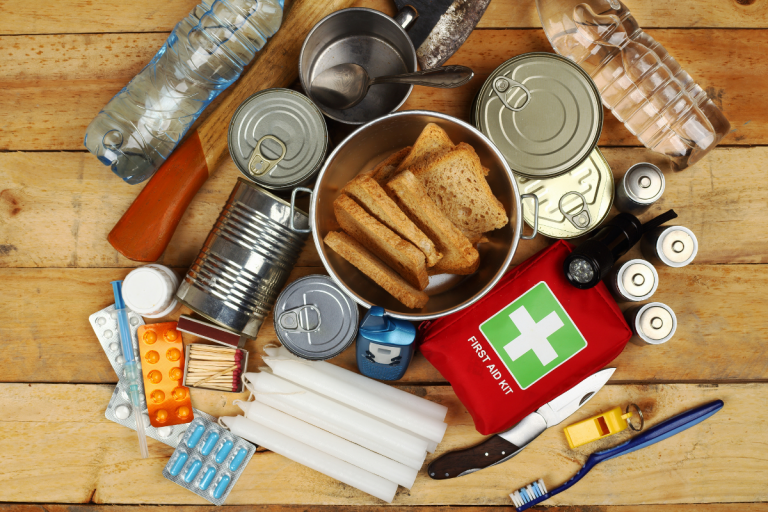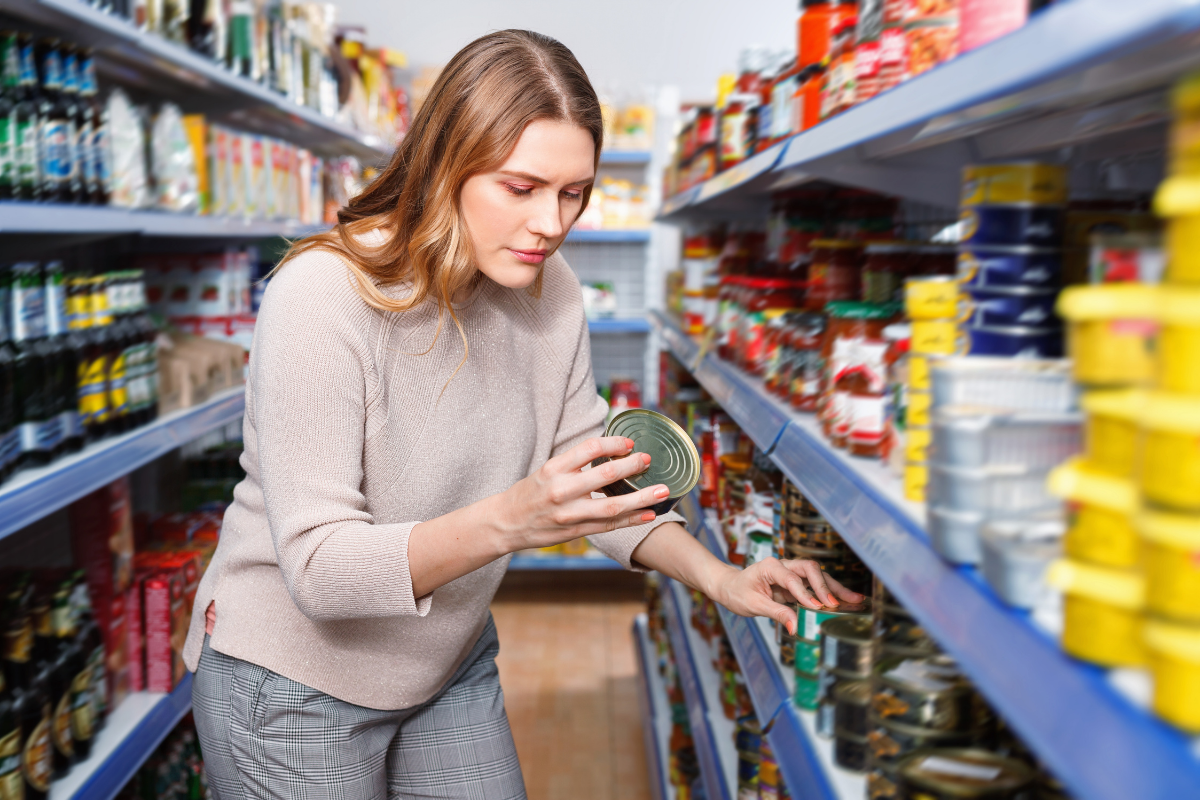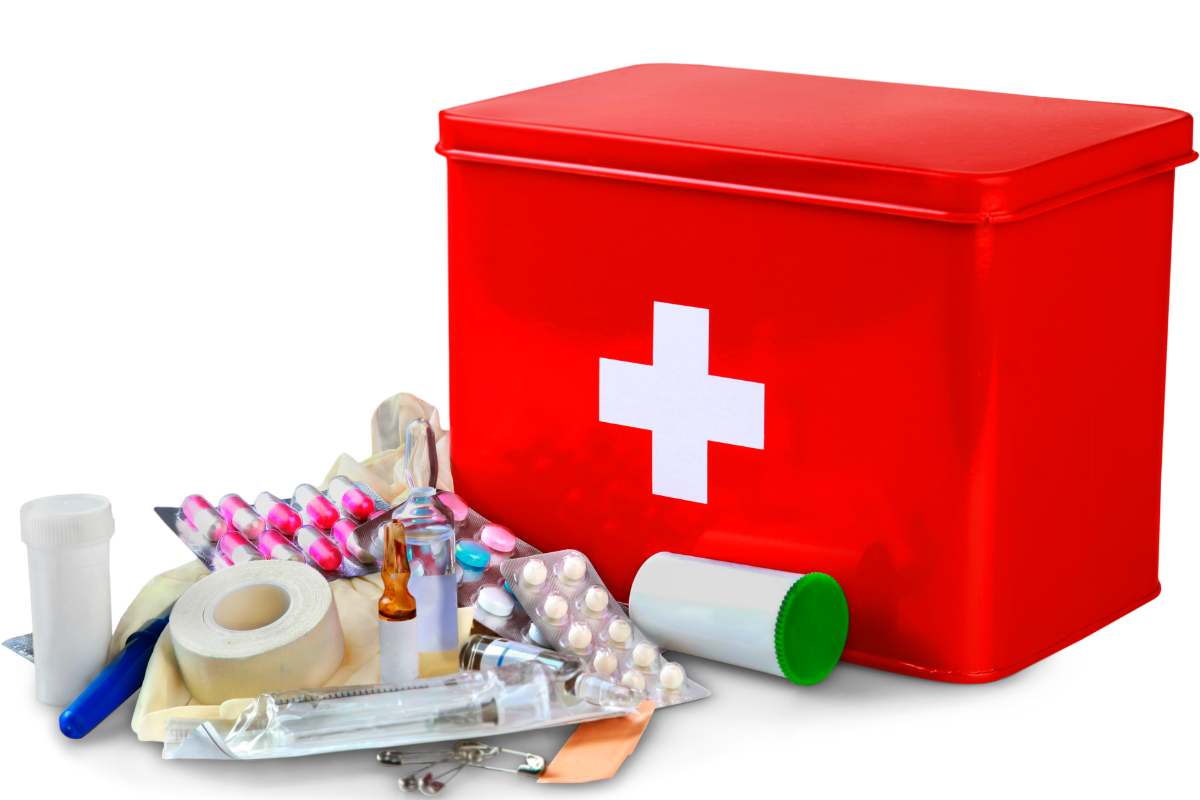
Living in Japan, it’s not a question of if a major earthquake will strike, but rather when “the big one” will finally come. According to the Japanese government, there is a 70% chance of an earthquake directly hitting Tokyo in the next 30 years. While the prospect of a future disaster is frightening, being prepared can help you feel reassured that when it happens you’ll be as ready as possible.
Here are 10 must-haves you need in your earthquake kit, based on the guidelines published by the NHK. You should keep these items in an easily accessible backpack, that you can bring with you if you need to evacuate.

1. Food
You will need 3 days worth of non-perishable food that can be easily opened (if you need a can opener to open your cans, make sure to include it!), don’t need cooking, and can last in storage for a long time. Good options include:
- Canned foods like vegetables, beans, fruit, tuna, etc.
- Staples, like vacuum-packed rice.
- Comfort foods like chocolate, candy bars, gummies.
- Nutrition essentials, like vegetable juice, vitamins, Calorie Mate bars, and supplements.
2. Water
Keep bottled drinking water in your emergency pack to take with you, about 1 gallon/ 4 liters per person. Also, you should always store at least 3 days worth of bottled water (about 4 liters per person per day) in your home. Also, a tip I received from someone who lived through the 2016 Kumamoto earthquakes, is to fill your bathtubs and sinks with water as soon as you can safely do so after the earthquakes have subsided (as long as your place of residence is still safe and liveable). You may not be able to drink the water you save, but you can still use it for washing and bathroom necessities, as it is likely the water lines will also be down after the earthquake.

3. Important Documents/ Cash
Keep your bank book and credit cards somewhere easily accessible. Also, keep important documents (like residence cards, my number cards, marriage/birth certificates, etc.), or at the very least copies of all your important documents, inside the kit. They will be important for identification (in particular if you are a foreigner living in Japan). Also, getting lost/destroyed documents reissued would be difficult, especially during an emergency.
You will also probably not be able to withdraw money from ATMs or banks during an emergency, so you should keep some cash on you, just in case you need to make purchases. The recommended amount is between 10,000 and 100,000 yen. Keep the documents and cash in a strong, waterproof plastic bag.
4. Electronics
The power may go out after an earthquake, so you will likely need emergency lighting. The NHK recommends led lanterns and headlamps for each family member (do not use candles as they might be dangerous). You can also include flashlights, and/or keep a small flashlight easily accessible at your bedside for nighttime emergencies.
Since these devices are battery-powered, be sure to remember extra batteries. For that matter, you should also include batteries for all important devices, including a spare cell phone charger (either battery-powered or solar-powered). NHK also recommends you keep a portable radio, as, during an emergency, internet and cell lines may be down, so the government will broadcast important information over radio waves.
5. Medicine
Always include a first aid kit in your emergency pack. Good first aid kits should contain:
- Bandages
- Sterile gloves
- Masks
- Gauze
- Soap
- Disinfectant
- Tweezers
- Scissors
- Antipyretics
- Pain relievers
- Burn Ointment
Also, make sure to include extras of any prescription medicines you require, as well as a spare pair of prescription glasses, if you wear them.
6. Shoes
The government advises you to keep a spare pair of thick-soled, comfortable shoes (like sneakers/trainers) near your bed. In the event of an earthquake, there may be broken glass on the floor in your home. A pair of shoes will protect your feet as you walk through your apartment once the quake has subsided. Cuts on feet due to broken glass are one of the most common injuries after an earthquake.
7. Whistles
Whistles are important for emergency situations when you might end up trapped and need to signal your location for help. It’s best to keep whistles somewhere easily accessible at all times, for example, on a keychain or taped under your desk or bed. Three whistle blasts in a row is a signal for help in most countries.

8. Sanitation
As there will likely be no running water available, there are a few indispensable items you will need for maintaining good hygiene, as well as other purposes. The NHK recommends bringing a pack of oral care wet wipes, for cleaning eating utensils, “brushing” your teeth, and for sanitation purposes. Heavy-duty plastic bags in multiple sizes are also an important element of your emergency kit. The bags have many uses, including water transportation, emergency waterproof shelter, first aid, and sanitation/waste disposal. Finally, for sanitation, you can consider getting an emergency toilet kit, as plumbing will likely be non-functional after a large earthquake.
9. Shelter
You’ll need protection from the elements, as you may be forced to stay outside after evacuating. In addition, to spare clothing (one full change of clothes), you should pack a blanket/sleeping bag, kairo heating packs, and a jacket.
10.Tools
Finally, you will want to keep a multipurpose selection of tools in your bag, for unpredictable situations. A swiss army knife (with can opener function), a rope, a pen and notebook, helmets, and heavy-duty leather gloves are all useful, versatile items.
















